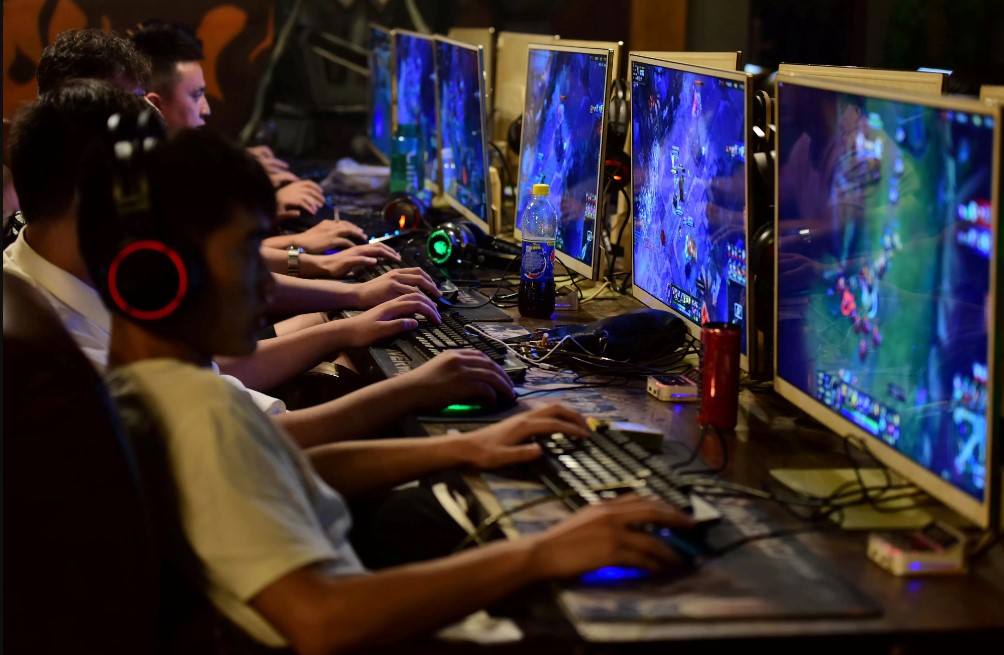Online Slot has rapidly evolved into one of the most significant and influential forms of entertainment in the 21st century. What started as a niche hobby for a small segment of tech-savvy individuals has now become a global industry, boasting millions of players, high-profile competitions, and a massive cultural impact. From casual mobile games to immersive multiplayer experiences, online gaming touches all corners of the world and has forever changed how we interact with technology and each other.
A Brief History of Online Gaming
The origins of online gaming date back to the 1970s, when universities and research institutions used early computer networks to connect players. These rudimentary text-based games allowed users to interact in virtual environments, forming the foundation for what would become a much larger industry. The 1990s saw the rise of the internet, which allowed multiplayer games to flourish on a much larger scale, giving birth to titles such as Quake, StarCraft, and Diablo that enabled global connectivity and competition.
By the early 2000s, online gaming entered a golden age, driven by the success of massively multiplayer online role-playing games (MMORPGs) like EverQuest and World of Warcraft. These games not only popularized online gaming but also established the idea of virtual worlds where thousands of players could interact simultaneously. The rise of broadband internet and more powerful gaming hardware further accelerated the growth of online gaming, making it accessible to a broader audience.
The Social Aspect of Online Gaming
One of the defining features of online gaming is its inherent social component. Unlike traditional single-player games, online games allow players to connect with others in real-time, creating communities that can span continents. Whether it’s working together to defeat a powerful boss in an MMORPG or coordinating strategies in team-based shooters like Call of Duty, online gaming fosters collaboration and teamwork.
For many players, online gaming serves as a social outlet, enabling them to meet people from different backgrounds and cultures. Games like Fortnite, Among Us, and Minecraft have become virtual meeting places, where friends gather to chat, play, and create memories together. In some cases, the bonds formed in online games transcend the virtual world, with players meeting in person or maintaining lifelong friendships that started in-game.
Moreover, the rise of platforms like Discord, Twitch, and YouTube Gaming has taken the social nature of gaming to new heights. Players can now stream their gameplay live, engage with fans, and build communities around their content. This has not only given rise to professional gamers and streamers but has also allowed casual players to share their experiences with a wider audience.
E-sports: The Competitive Side of Online Gaming
Online gaming has also given birth to the rapidly growing e-sports industry, where professional players compete in organized tournaments for substantial prize pools. E-sports has exploded in popularity, with games like League of Legends, Dota 2, and Overwatch leading the charge. These games require not only individual skill but also teamwork, strategy, and split-second decision-making, much like traditional sports.
What sets e-sports apart from traditional gaming is its competitive, spectator-driven nature. Major e-sports tournaments are streamed to millions of viewers worldwide, with some events attracting live audiences in sold-out arenas. The level of professionalism within e-sports has reached new heights, with teams signing sponsorship deals, players earning salaries, and schools offering e-sports scholarships.
E-sports’ popularity has led to its inclusion in mainstream entertainment, with coverage on major networks and even discussions about including it in future Olympic Games. It has become a cultural force, bridging the gap between traditional sports and digital entertainment, appealing to a young, tech-savvy generation.
The Role of Technology in Shaping Online Gaming
The meteoric rise of online gaming can largely be attributed to advancements in technology. High-speed internet, cloud computing, and mobile gaming have made it easier than ever to connect and play with others. The introduction of powerful gaming consoles and PCs has also enhanced the quality of games, offering more immersive and visually stunning experiences.
Cross-platform play, which allows players on different devices to compete or cooperate in the same game, is a growing trend that has removed many barriers between gaming communities. Games like Rocket League and Fortnite have led the charge in this area, ensuring that players on consoles, PCs, and mobile devices can all participate in the same online ecosystem.
Additionally, cloud gaming services such as Xbox Cloud Gaming and PlayStation Now allow users to stream games directly to their devices, reducing the need for expensive hardware. As 5G technology becomes more widespread, the quality and accessibility of cloud gaming are expected to improve, allowing players to experience high-end gaming on more devices.
Challenges in Online Gaming
Despite its numerous benefits and growth, online gaming faces several challenges. Toxicity, cheating, and harassment are ongoing issues in multiplayer games, often leading to negative experiences for players. Developers have implemented systems to combat these problems, such as reporting tools, player moderation, and AI-driven monitoring, but they remain persistent challenges.
Additionally, the issue of “pay-to-win” mechanics and microtransactions has sparked significant controversy. Many online games offer in-game purchases, which can sometimes give players who spend more money an unfair advantage over others. This practice has been criticized for promoting unfair competition and encouraging excessive spending, particularly among younger players.
Gaming addiction is another topic of concern, as some individuals spend an excessive amount of time playing games at the expense of other areas of life. While the majority of gamers engage with the medium in a healthy manner, there are growing discussions about how to promote responsible gaming habits, with certain countries even introducing laws to limit gaming hours for young players.
The Future of Online Gaming
Looking ahead, the future of online gaming appears to be full of potential. Virtual reality (VR) and augmented reality (AR) are becoming more integrated into the gaming world, offering deeper immersion and interaction. Games like VRChat and Beat Saber have already shown how VR can create entirely new forms of online interaction, while AR games such as Pokémon Go have blended the real and virtual worlds.
Artificial intelligence (AI) is also likely to play a growing role in the future of online Toto Slot. AI can create more dynamic and realistic in-game characters, tailor gaming experiences to individual players, and even help developers balance games by analyzing vast amounts of player data. This will lead to more personalized gaming experiences and richer, more responsive virtual worlds.
Blockchain technology and decentralized gaming platforms could also change how players interact with online games. With the rise of non-fungible tokens (NFTs) and in-game asset ownership, players may have more control over their virtual items, potentially trading or selling them in secondary markets. This could pave the way for new economic models in gaming and blur the lines between gaming and real-world financial systems.
Conclusion
Online gaming is a vibrant and ever-evolving part of modern culture, bridging gaps between people across the world and creating new forms of entertainment. From casual mobile games to competitive e-sports, the diversity of online gaming means there’s something for everyone, whether you play for fun, competition, or socialization. As technology continues to advance, the future of online gaming promises even greater immersion, innovation, and opportunities for players and creators alike.
What was once considered a pastime has now become a dominant force in entertainment, culture, and technology—one that shows no signs of slowing down.










